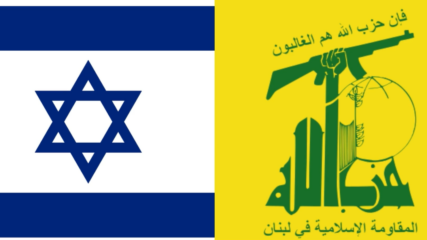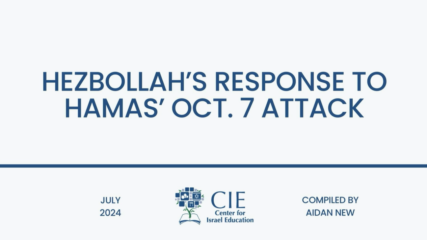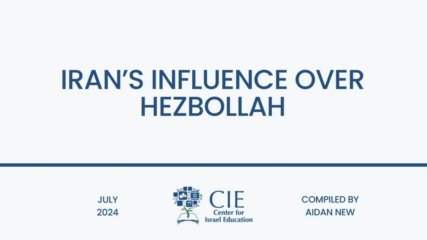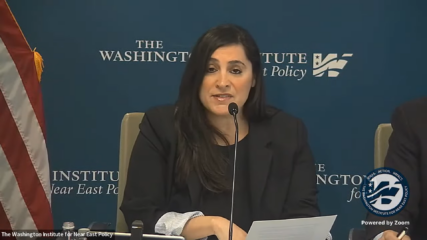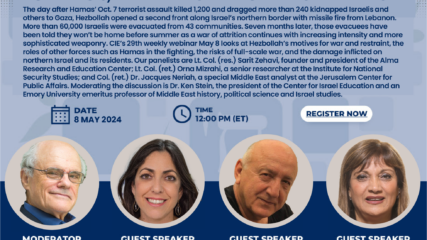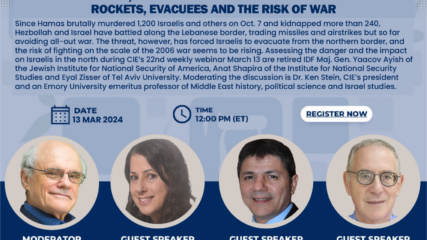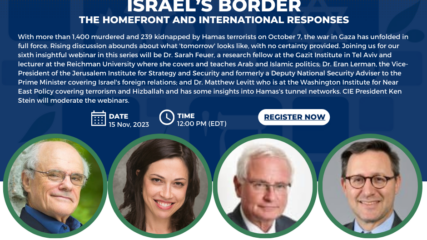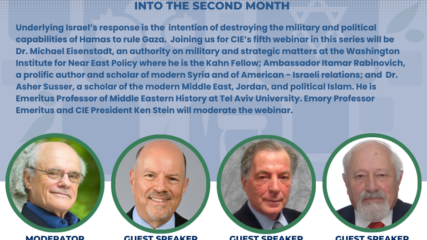The murderous attacks perpetrated by Hamas terrorists against Israelis reverberated across Israel, the region and the world. As Israel buried tens of hundreds of its dead, the government formed an emergency war cabinet to shape responses as thousands were mobilized for reserve duty. On Israel’s borders and across the region, tensions rose. The U.S. responded with unequivocal presidential, congressional and military support for Israel’s national security and President Biden’s visit to Israel on October 18. Joining CIE to provide insight into Hamas’ ideological motivations, its connections to Iran and the rise of Islamic antisemitism were Tel Aviv University Professor Meir Litvak. Discussing Middle Eastern, North African and international responses was Dr. Sarah Feuer, a lecturer at Reichman University and a research fellow at the Gazit Institute in Tel Aviv. Addressing the implications and context of Biden’s visit was Dr. Amnon Cavari, who teaches at Reichman University and this year is an Israel Institute visiting professor of political science at the University of Michigan. During this 39-minute webinar, they talked about Hamas’ genocidal ideology and its reasons for striking now, the likelihood of weakening regional and international support for Israel as the war continues, and the war’s best possible outcomes for Israel. Moderating was Dr. Ken Stein, the Center for Israel Education’s president and an Emory University professor emeritus of Middle Eastern history and political science.

